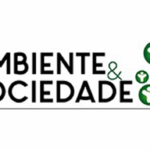Andréa Cerqueira Souza specializes in marketing, works with communication and publications scientific marketing at Getulio Vargas Foundation, São Paulo, SP, Brazil

Marcelo Bispo

Sandro Cabral
RAE-Revista de Administração de Empresas presents in issue number 4, 2018 articles from different areas of knowledge and brings, in the Perspectives section, two articles that discuss the challenges of peer review of scientific articles on Administration in Brazil. In “Authors, reviewers and editors: tripod of the review process of scientific articles”, Sandro Cabral, PhD from Universidade Federal da Bahia (UFBA) and Université Paris 1 (Pantheon-Sorbonne) and post doctorate in Public Policies at UFBA. He is a professor at INSPER, a licensed professor from UFBA School of Management, a CNPq productivity fellow and editor of the journal Organizações & Sociedade ,shares his experience and talks about how authors, referees and editors can reconcile their visions in the process of evaluating articles. Contributing to the discussion, Marcelo de Souza Bispo, PhD in Administration from Universidade Presbiteriana Mackenzie and post doctorate in social theory from the University of Kentucky (USA). He is a professor at Universidade Federal da Paraíba (UFPB), coordinator of the Núcleo de Estudos em Aprendizagem e Conhecimento (NAC-CNPq) and editor-in-chief of Revista Teoria e Prática em Administração, reflects on the reviewer’s position and which are the technical skills needed to perform a good evaluation during the editorial process.
By sharing their experiences as authors, referees and editors of scientific journals, Cabral and Bishop mention particularly productivism that ends up overwhelming the reviewers. Bishop recalls that Brazil looks up to the countries of the North, especially the United States and the United Kingdom (FARIA, 2011), which measure the number of articles published in high impact scientific journals. This model has led to the creation of a large number of Brazilian journals on Administration and, consequently, increased the demand for reviewers. To ensure the quality of the published content, it is necessary to have rigorous editorial processes (CHRISMAN; SHARMA; CHUA, 2017), therefor, both authors corroborate the lack of good reviewers. For Bishop, postgraduate courses must also address the editorial process, since the eagerness to publish is transforming masters and doctoral courses into article producing laboratories, stimulating the search for texts of final work that may be published (BISPO, COSTA, 2016). In this sense, Cabral states that authors who merely write for writing do not deserve the effort of editors and reviewers who seek to improve the level of what is published (CABRAL; LAZZARINI, 2011).
For Cabral, the good results of the triad formed by authors, referees and editors depend on the alignment of interests of the parties involved, and the imbalance in one end compromises the whole. In order to guarantee the rigor and relevance of what is published, according to Cabral, it is necessary to fight the so-called “salami science”, the one that divides the results into several by-products to increase the number of publications (DINIZ, 2018), and authors must place themselves as reviewers to better understand the review process. Bishop points out that it is not uncommon for researchers to commit in a lesser extent while playing the role of reviewers than when they are authors, and ensures that to increase the system’s credibility, commitment to reviews must be equal or greater. In times of academic productivism (ALCADIPANI, 2011, FARIA, 2011, RIGO, 2017), Bishop warns the large number of authors with published articles, but with few reviews recorded in their curricula, which speaks about the lack of commitment to the area and their peers.
References
ALCADIPANI, R. Resistir ao produtivismo: uma ode à perturbação Acadêmica. Cad. EBAPE.BR [online]. 2011, vol.9, n.4, pp.1174-1178. ISSN 1679-3951. [viewed 5 November 2018]. DOI: 10.1590/S1679-39512011000400015. Available from: http://ref.scielo.org/jwgmw5
BISPO, M. S and COSTA, F. J. Papers as student assessment in graduate courses: educative tool or a sub-system of assembly line?. Cad. EBAPE.BR [online]. 2016, vol.14, n.4, pp.1001-1010. ISSN 1679-3951. [viewed 5 November 2018]. DOI: 10.1590/1679-395141927. Available from: http://ref.scielo.org/56hnhv
CABRAL, S and LAZZARINI, S. G. Internacionalizar é preciso, produzir por produzir não é preciso. Organ. Soc. [online]. 2011, vol.18, n.58, pp.541-542. ISSN 1984-9230. [viewed 5 November 2018]. DOI: 10.1590/S1984-92302011000300011. Available from: http://ref.scielo.org/7rcwrw
DINIZ, E. H. O gato que copia: similaridades e produção acadêmica na era digital. Rev. adm. empres. [online]. 2018, vol.58, n.2, pp.201-205. ISSN 0034-7590. [viewed 5 November 2018]. DOI: 10.1590/s0034-759020180208. Available from: http://ref.scielo.org/b73jkb
CHRISMAN, J. J., SHARMA, P. and CHUA, J. The mind-set of editors and reviewers. Family Business Review, v. 30, n. 3, p. 211-218, 2017. ISSN: 0894-4865 [viewed 15 August 2018]. DOI: 10.1177/0894486517708377. Available from: http://journals.sagepub.com/doi/abs/10.1177/0894486517708377
FARIA, A. Repensando produtivismo em gestão no (e a partir do) Brasil. Cad. EBAPE.BR [online]. 2011, vol.9, n.4, pp.1164-1173. ISSN 1679-3951. [viewed 5 November 2018]. DOI: 10.1590/S1679-39512011000400014. Available from: http://ref.scielo.org/xy8ygs
RIGO, A. S. Comunidade acadêmica, produtivismo e avaliação por pares. Rev. adm. empres. [online]. 2017, vol.57, n.5, pp.510-514. ISSN 0034-7590. [viewed 5 November 2018]. DOI: 10.1590/s0034-759020170508. Available from: http://ref.scielo.org/v7hwqv
External link
Revista de Administração de Empresas – RAE: www.scielo.br/rae
About Andréa Cerqueira Souza

Andréa Cerqueira Souza
Advertising person (Claretiano Faculdade) and marketing specialist (FGV), she is communication and scientific marketing of publications at Getúlio Vargas Foundation.
Como citar este post [ISO 690/2010]:


















Recent Comments